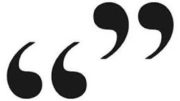Here’s an excellent and very personal account of a person who attended her first Patriot demonstration, which was in Bristol and was organised by Gays Against Shariah and Britons and Immigrants United Against Terror. It appears that the event and those who took part in it was worlds away from the impression given by the Left Establishment. In this piece as well as describing her impressions of the demonstration she also examines the mindless shouting of the word ‘fascist’ by the Leftist counter protestors with reference to the semantacist S. I. Hayakawa and identifies who the true fascists were yesterday.
Contrary to what you may have heard, the EDL did not march in Bristol yesterday. By The Ubiquitous Librarian
I attended my first political march this century yesterday, with some trepidation it must be said. My husband had been on previous such demonstrations, and assured me we were on the correct side, though we would be characterised as right-wing and opposed by those on the left. Both of us have voted Labour and indeed marched alongside left-wingers, though that was all a long time ago, last century in fact, when we were much younger and the world was very different. Today of all days, I would like to look back on what lead me to do this, and to give my impressions of the event. We had a meet-up point at Bristol Temple Meads station, a short march through the streets of Bristol and a rally in a park. We had police escorts, both on foot and some mounted officers.
Our first sign that something major was going on was when we found some of our fellow supporters intended to skip the march and go straight to the rally because they did not want to be kettled this time and find themselves unable to be where they wanted and leave when they chose. This lady tried to go the rally but was stopped by a police cordon, the police would only let her in as part of a group and suggested she try to join the march along the way. You might notice in passing that as I understand, they did not suggest in any way that she should not join the march or rally, in fact they assisted her to find us. So we met her and went with her to the meet-up point and I went to get a coffee and see what food and drink I could get, in case we were kettled again. I popped in to Starbucks by Bristol Temple Meads station, got the coffee and other snacks to take away. As I was putting milk and sugar in the coffee, I heard the person who had just served me warn the couple she served next that there was an EDL march forming up outside. Those people intended to have their food and drink in the cafe rather than take it away and she was explaining to them why the forecourt outside the cafe had lots of people, some with banners. No doubt she was aware there were counter-demonstrators prepared to see off the fascists and everyone was prepared for there to be trouble. We had already passed a few Antifa protestors with banners, who were gathering in preparation for opposing our march. I had been warned to expect these people.
I was a bit baffled, I didn’t know it was an EDL march, so I checked this with my husband, who had given me the names of different groups who had organised it, one of whom was Gays against Shariah. That was good enough for me, as a Jewish bisexual I do not want to see Shariah on our streets and I fear the day that might come when Shariah courts get hold of gay people in Britain. We know Shariah considers homosexuality to be a capital offense, whereas in Britain it used to cause some people to tut-tut and wish those people would be a bit more discreet. The line went “After all they are legal now, they don’t have to shove their sexuality in people’s faces”. After recent legislation of course, and as time has gone on, even those remarks are made privately, if at all, and most people consider sexuality a private matter and up to the individuals concerned.
In fact, there was a march of about 100-150 people, protesting about the rise of Shariah in Britain, and waving St George’s flags. We were faced by Antifa shouting “fascists off our streets” though the police did a sterling job protecting us from them and leading them away, for example when a lone person shouted that we were racist It was indeed noticeable to many of us that the same people were dodging round the city and appearing at different points in our march to howl their protests at us. Being faced by a howling mob made me feel like patting them on the head and saying “there, there dear, calm down. You have been conned, you have been lied to, let the grown-ups deal with this.” The people I marched with were historically literate, they knew about communism and Nazism, leftist ideology, feminism and gay rights. They appeared to be largely but not entirely white, heterosexual, able-bodied people, of various ages, men, women and a few children. Going by the t-shirts and banners and looking around me, it was obvious to me that some were atheists, some were gay, some were black or brown and at least one person was in a wheelchair.
Apparently Gays against Shariah are not gay enough for the Antifa people to recognise them as “really gay”, marching down the street under a rainbow banner announcing themselves as gay is not enough in Antifa eyes. A black man at the rally spoke about coming from a long line of Sufi Muslims and said he knew very well from his own experience of Sheikhs and Imams that Muslims said one thing in public and another behind closed doors. Anne-Marie Waters of UKIP spoke movingly of her wish to lead the party soon and her determination to make a difference in UK politics, to stand up for British people against the encroachment of other values not compatible with Western culture, democracy and freedom of speech.
We were screamed at by white people calling us racist, despite the fact that in our admitedly quite small group, there were black and brown people, as well as white people, who were offended by this attack. There was a general view, also expressed from the stage at at the rally, that Antifa were the real fascists, opposed to freedom of speech and freedom of belief. They seemed to think that everyone should think and speak only as they did, or be prevented from marching or speaking at all. I came across “no platform for racists and fascists” policies first when I was at the Polytechnic of North London, in the late 1970s. It seems like a good idea sometimes, but all it means is that those who hold these abhorrent views go underground and meet in secret. At the time they would publish magazines and newsletters for each other and some would meet to celebrate Hitler’s birthday. There were not many of them and ignoring them seemed to work, as most of us ignored the Socialist Worker Party lot. The other leftists formed the Broad Left coalition and we all did our best to keep the political nutters of all sorts out of power in the student union, so we could get on with our education. We were well aware that a short time before there had been an Occupation and though it might have been fun to be part of it, many people lamented that they had come to learn and been unable to do so.
I was a student of Librarianship at a building in what was then grotty Islington, in a building that had been a card factory before the Polytechnic got it and has since been knocked down and a block of luxury flats put up in its place. At the time, such an idea was nonsense, but Islington has been gentrified almost out of all recognition since then. One of the books I had to read before my course started was “Language in thought and action” by S. I. Hayakawa. I got the 3rd edition, published by George Allen and Unwin in 1974 but it was originally written in 1939 and 1940, published in 1941 and reprinted and revised regularly ever since. It is about semantics, which is “an understanding in biological and functional terms of the role of language in human life, and … an understanding of the different uses of language: language to persuade and control behavior, language to transmit information, language to create and express social cohesion, and the language of poetry and the imagination.” As you may guess, I was hooked and have the book by me as I write.
Now Hayakawa was a Canadian working in America, of Japanese origin, so he started writing this book to respond to “the dangers of propaganda, especially as exemplified in Adolf Hitler’s success in persuading millions to share his maniacal and destructive views. It was my conviction then, as it remains now, that everyone needs to have a habitually critical attitude toward language – his own as well as that of others – both for the sake of his personal well-being and for his adequate functioning as a citizen. Hitler is gone, but if the majority of our fellow citizens are more susceptible to the slogans of fear and race hatred than to those of peaceful accommodation and mutual respect among human beings, our political liberties remain at the mercy of any eloquent and unscrupulous demagogue.” He tried to establish what people meant when they called someone a fascist and came to the conclusion there was NO agreed meaning, everyone meant something different by it. So he called it a snarl word, a statement that is a direct expression of disapproval, contrasted with a purr word, which expresses approval. These are judgments in their simplest form, the human equivalent of an animal snarling or purring, without any deeper meaning than “I don’t (or do) like it”. The original meaning of fascist came from the Italian fasces, a bundle and meant basically “together we are stronger” from what I remember, meaning one stick can be broken but a bundle of sticks cannot be broken so easily.
So I came to this march well-equipped with the understanding that fascist means different things to different people and mostly what people mean is “I don’t like your views”. Of course for some decades now “racist” has been used as a term of general abuse, people will say someone is racist without meaning any reference to race, only to religious belief or expression. Phobia is another slippery word of course, the meaning of which has changed, so that those of us who insist it still means “an irrational fear” are liable to be shouted down. So a perfectly rational fear and concern about being murdered or raped or otherwise attacked, as has happened in so many cases and places and to so many people, is suddenly a phobia according to a vast number of lefties.
This was not an EDL march at all, it was ordinary people who were there to defend the British way of life. It was certainly not the ‘EDL march’ that many of the Left wingers may have been told that it was or what they were expecting. Not all marchers were British by any means, but we all consider Western civilisation a good thing and we wish it to continue. That was why I marched yesterday for the first time in decades and I’m glad I did.
Links
There are many other biographies of Hayakawa out there on the web, I enjoyed this obituary:
http://articles.latimes.com/1992-02-28/news/mn-2960_1_state-college





I wouldn’t touch the EDL with the proverbial bargepole, but as a gay man I’d be more than happy to join a Gays against Sharia (can you seriously imagine “Gays FOR Sharia”?) march.
And, as a linguist and former librarian, thank you for telling me about Hayakawa. I shall investigate further.
I used to think in a similar way about the EDL until I met some of those involved and realised that they were not the same as the neo nazis that I marched against in the early 1980’s. A lot of those who I met were just ordinary people worried about Islam. I completely agree that a Gays Against Shariah group and march is a good thing. Sadly there is an LGBT group that tried to whitewash Islamic gay hatred, they are an SWP/UAF front group called LGBT Against Islamophobia and they are completely hatstand. See https://www.fahrenheit211.net/2016/07/22/its-lefty-and-islamic-astroturfing-time-in-the-north-east-of-england/ This lot are almost as mad as the ‘Jews for Jeremy’ Corbyn supporters group.
I dare say the author of this piece will see the comment but I will alert her to it and your interest in Hayakawa